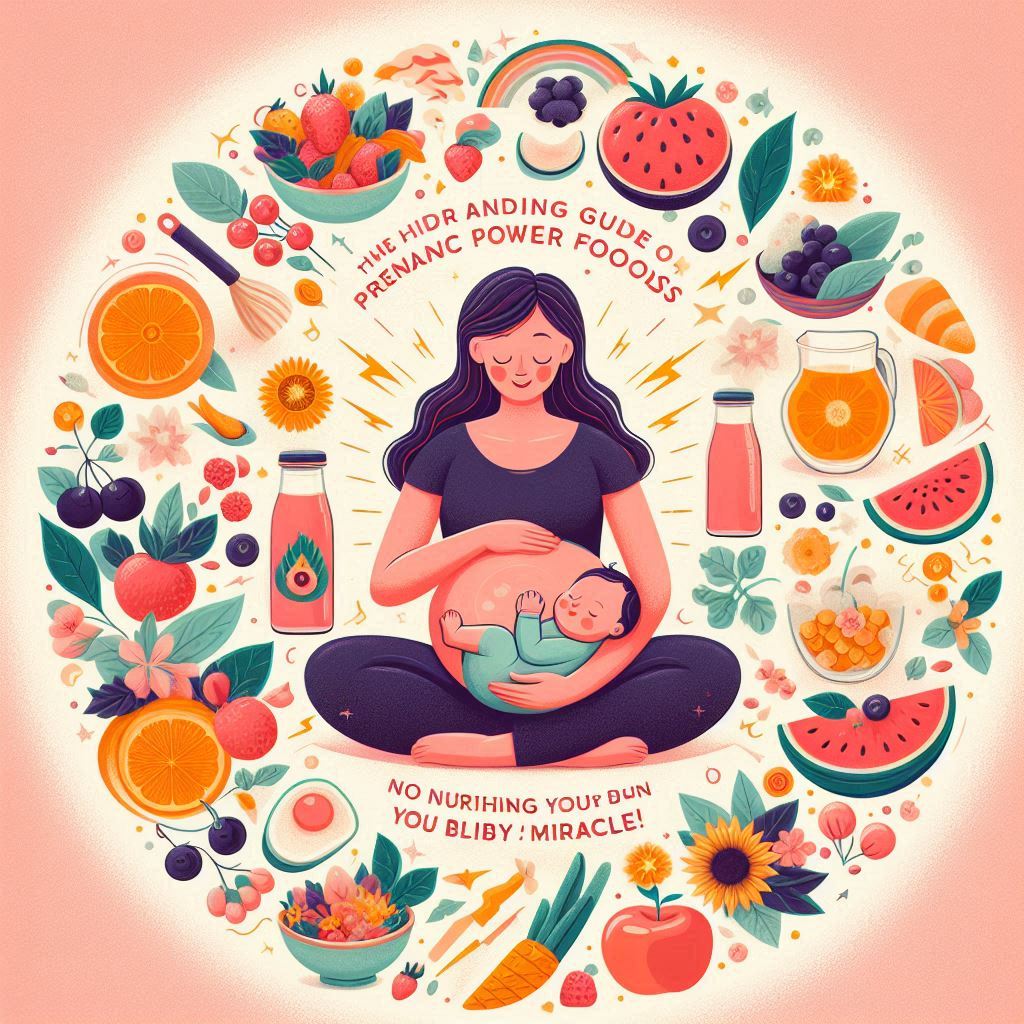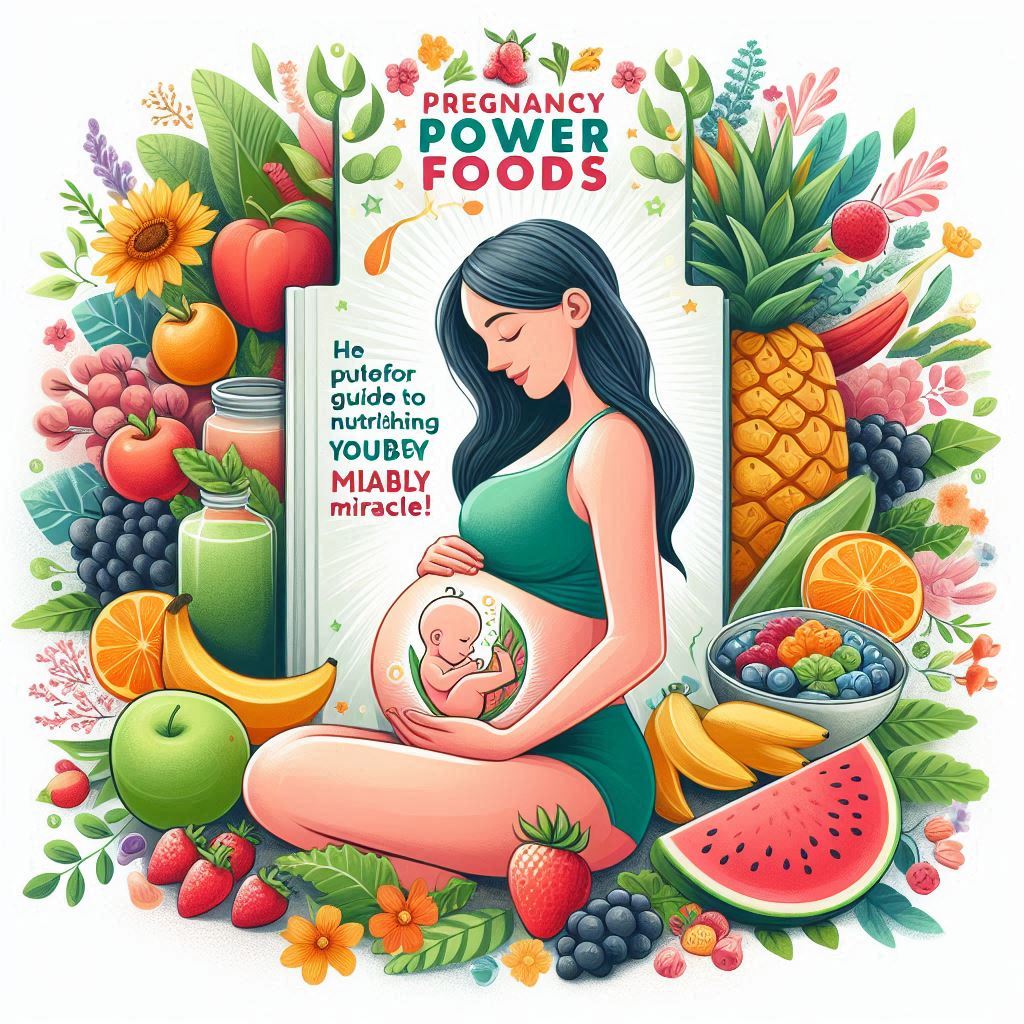
Pregnancy Power Foods: The Ultimate Guide to Nourishing Your Little Miracle!
Pregnancy is a wonderful journey, yet it comes with unique challenges, especially when it comes to nutrition. The foods you choose impact not only your health but also your baby’s development. Consuming the right nutrients is essential to support your little one’s growth and keep you feeling strong and energized. In this ultimate guide, we’ll explore power foods that can help nourish both you and your baby throughout pregnancy.

The Importance of Nutrition During Pregnancy
As your body undergoes significant changes during pregnancy, your nutritional needs increase. Nutrients such as folic acid, iron, calcium, and omega-3 fatty acids become essential for supporting your developing baby. A balanced diet can also ease common pregnancy symptoms, help maintain energy, and contribute to a healthier delivery.
Key Nutrients for Pregnancy
Before diving into specific power foods, let’s review some essential nutrients to focus on during pregnancy:
- Folic Acid: Important for fetal growth and for preventing neural tube defects. Prenatal vitamins that include folic acid and foods rich in this nutrient are recommended.
- Iron: Needed to make hemoglobin, which carries oxygen in your blood. The increase in blood volume during pregnancy means more iron is required.
- Calcium: Crucial for building your baby’s bones and teeth, as well as for maintaining your own bone health.
- Omega-3 Fatty Acids: Support brain development and may reduce the risk of premature birth.
- Protein: Essential for the growth of fetal tissues, including the brain, and for supporting your increased blood volume and tissue growth.
Pregnancy Power Foods
Now that we understand the key nutrients, let’s explore power foods that are rich in these essential nutrients.
1. Leafy Greens
Spinach, kale, and collard greens are packed with vitamins A, C, and K, as well as folate and iron. They are low in calories and high in fiber, which can help prevent constipation—a common pregnancy issue. Add these greens to salads, smoothies, or stir-fries for a nutrient boost.
2. Whole Grains
Whole grains like quinoa, brown rice, and whole wheat bread provide fiber, B vitamins, and minerals like iron and magnesium. They help keep you full and provide sustained energy. Choose whole grains over refined ones for a nutrient-packed choice.
3. Lean Proteins
Protein is critical during pregnancy for your baby’s tissue development. Include lean proteins such as chicken, turkey, fish, beans, and lentils. Salmon, a fatty fish, is abundant in omega-3 fatty acids, which are essential for maintaining brain health.
4. Nuts and Seeds
Nuts and seeds are nutrient-rich and easy to add to various meals. Almonds, walnuts, chia seeds, and flaxseeds are rich sources of healthy fats, protein, and fiber. They also offer vitamin E and magnesium. Just watch portion sizes, as nuts are calorie-dense.
5. Dairy Products
Milk, yogurt, and cheese are rich in calcium, protein, and probiotics. Calcium is important for your baby’s bone development, while probiotics aid digestion. If you’re lactose intolerant, consider fortified plant-based alternatives such as almond or soy milk.
6. Eggs
Eggs are versatile and nutritious, providing high-quality protein, choline (important for brain development), and various vitamins and minerals. Enjoy them scrambled, boiled, or in omelets with added veggies for extra nutrition.
7. Berries
Berries like blueberries, strawberries, and raspberries are high in antioxidants, vitamin C, and fiber. They make excellent snacks or smoothie additions. The antioxidants in berries can help fight inflammation and support overall health.
8. Sweet Potatoes
Sweet potatoes are high in beta-carotene, which the body converts into vitamin A, essential for fetal development. They also provide fiber and complex carbohydrates, which help maintain stable blood sugar levels.
9. Legumes
Beans, lentils, and peas offer protein, iron, folate, and fiber. Including legumes in your meals can help meet your increased nutrient needs during pregnancy. Add them to soups, stews, and salads.
10. Avocado
Avocados are a fantastic source of healthy fats, fiber, and a variety of vitamins and minerals. The monounsaturated fats in avocados support brain development, and their creamy texture makes them a tasty addition to salads or smoothies.

Tips for Incorporating Power Foods into Your Diet
- Plan Your Meals: Create a meal plan to ensure you include a variety of power foods in your diet. Aim for a colorful plate filled with fruits, vegetables, and protein sources.
- Snack Smart: Keep healthy snacks on hand, like nuts, yogurt, and fruit, to manage cravings and maintain energy throughout the day.
- Stay Hydrated: Drink plenty of water, herbal teas, and nutrient-rich smoothies to stay hydrated and nourished.
- Listen to Your Body: Cravings can signal what your body needs. If you crave specific foods, try to find healthy alternatives.
- Cook at Home: Preparing your meals allows you to control ingredients and make healthier choices. Experiment with recipes that incorporate pregnancy power foods.
Conclusion
Pregnancy is a period of significant change, and what you eat plays a vital role in the health of both you and your baby. Focusing on power foods rich in essential nutrients can nourish your body, support your baby’s development, and manage pregnancy symptoms. Remember to listen to your body and consult with your healthcare provider for personalized dietary advice. With the right nutrition, you can enjoy a healthy and fulfilling pregnancy while giving your little miracle the best start in life!










